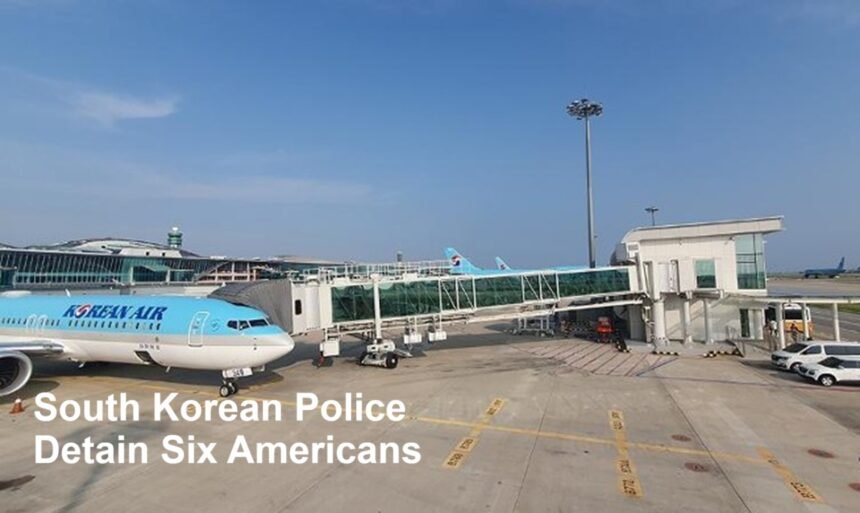The news of South Korean authorities detaining six American citizens at the border, carrying Bibles and over a thousand bottles reportedly filled with rice and US dollars, has stirred quite a conversation—not only about legal protocols but also about cross-border humanitarian efforts and the complexities of the Korean peninsula.
1. The Arrest That Sparked Attention
When six Americans were detained by South Korean police, what shocked many was not just their nationality, but the cargo they were attempting to transport. Authorities discovered an impressive 1,300 bottles that appeared ordinary but were in fact filled with rice grains and cash in US dollars, alongside multiple copies of the Bible. Their intent was soon questioned: was this a case of illegal proselytizing, an aid mission, or something else entirely?
2. Context: Religious Activity and Border Tensions
South Korea has strict regulations about activities near the border with North Korea due to the persistent political tensions. Distributing religious materials, food, or cash via balloons or similar methods across the highly fortified demilitarized zone (DMZ) can be met with severe responses from both sides. There’s always a delicate balance between humanitarian impulses and respecting international law, especially as North Korea often views such acts as hostile provocations or attempts at information infiltration.
3. The Role of Humanitarian Aid and Faith-Based Groups
There’s a long history of faith-based organizations operating on the Korean peninsula, often seeking to send food, essentials, and religious materials into North Korea where such resources are rare or illegal. I find it striking how these groups walk a fine line between activism and contravention of national law. In this case, the Americans’ intentions seem rooted in compassion—trying to send rice (a dietary staple) and US dollars for those in need, as well as Bibles for spiritual support.
4. Legal and Diplomatic Consequences
Being detained in a foreign country is never simple, especially when sensitive issues like religion and cross-border activities are involved. South Korean law prohibits unauthorized delivery of materials—especially religious ones—across the border. These Americans may now face investigation, potential fines, or even deportation. Such incidents also put diplomatic pressure on both South Korea and the US, as each case can ripple through the broader context of their alliance and regional stability.
5. Public and Political Reactions
These detentions have sparked varied responses in both South Korea and abroad. Some see the Americans as courageous humanitarians or missionaries, risking their freedom for a noble cause. Others argue they acted recklessly, potentially endangering peace in a fragile region. The South Korean public remains divided, while international observers watch how diplomacy and legal proceedings will unfold. In my view, this incident highlights the enduring tension between personal conviction and the reality of international politics.
Reflections on the Intersection of Faith, Law, and Geopolitics
The episode is a stark reminder that even well-meaning actions can have global repercussions. At age fifty or fifteen, the lesson is the same: understanding local laws, respecting borders, and being aware of political sensitivities are vital for anyone seeking to make a difference abroad. While motivations might be rooted in faith, charity, or hope, the context in which we operate can dramatically change the outcome of those actions. For now, the fate of these six Americans remains uncertain, as legal and diplomatic processes are set in motion.












